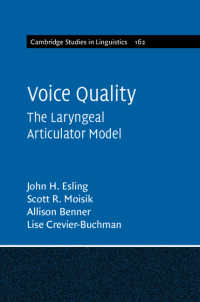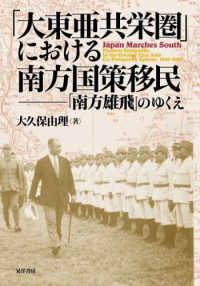Description
Historical Narrative Offers Introduction to Romanticism by Placing Key Figures in Overall Social Context
Going beyond the general literary survey, A History of Romantic Literature examines the literatures of sensibility and intensity as well as the aesthetic dimensions of horror and terror, sublimity and ecstasy, by providing a richly integrated account of shared themes, interests, innovations, rivalries and disputes among the writers of the late eighteenth and early nineteenth centuries.
Drawing from the assemblage theory, Prof. Burwick maintains that the literature of the period is inseparable from prevailing economic conditions and ongoing political and religious turmoil, as well as developments in physics, astronomy, music and art. Thus, rather than deal with authors as if they worked in isolation from society, he identifies and describes their interactions with their communities and with one another, as well as their responses to current events. By connecting seemingly scattered and random events such as the bank crisis of 1825, he weaves the coincidental into a coherent narrative of the networking that informed the rise and progress of Romanticism. Notable features of the book include:
- A strong narrative structure divided into four major chronological periods: Revolution, 1789-1798; Napoleonic Wars, 1799-1815; Riots, 1815-1820; Reform, 1821-1832
- Thorough coverage of major and minor figures and institutions of the Romantic movement (including Mary Wollstonecraft, Elizabeth Montague and the Bluestockings, Lord Byron, John Keats, Letitia Elizabeth Landon etc.)
- Emphasis on the influence of social networks among authors, such as informal dinners and teas, clubs, salons and more formal institutions
With its extensive coverage and insightful analysis set within a lively historical narrative, History of Romantic Literature is highly recommended for courses on British Romanticism at both undergraduate and post-graduate levels. It will also prove a highly useful reference for advanced scholars pursuing their own research.
Table of Contents
Illustrations viii
Introduction 1
I Revolution (1789-1798) 22
The 'Revolution Controversy' 22
Newington Green Circle and Richard Price 25
Mary Wollstonecraft 26
Anna Laetitia Barbauld 29
Abolition Movement 30
Thomas Beddoes, Pneumatic Institution 38
Slave Trade, Opium Trade 41
Elizabeth Montagu and the Bluestockings 47
Helen Maria Williams 51
William Blake 54
Anna Seward 63
Dissenters 64
Historical Nodes 66
Corresponding Societies and Treason Trials 67
Erasmus Darwin 70
Charles Lloyd 72
John Thelwall 74
John Horne Tooke 75
Nonconformists 77
William Blake: Vision and Prophecy 78
George Crabbe 81
Thomas Holcroft 83
Gothic, Domestic Violence, Sadism 92
The Irish Rebellion 99
Coleridge at Cambridge 100
William Frend 101
John Tweddell and James Losh 103
Freedom of the Press 105
Letters of Junius 107
George Dyer 115
Mary Hays 120
Elizabeth Hamilton 127
Mary Robinson 127
Coleridge and Wordsworth 128
Joanna Baillie 136
Maria Edgeworth 139
Charlotte Smith 139
II Napoleonic Wars (1799-1815) 158
The French Consulate and Great Britain 158
Coalitions 159
Toussaint L'Ouverture 168
Peace of Amiens 168
The 'Dejection' Dialogue 171
The Growth of The Prelude 177
Back to Nature 188
Coleridge: Conversation Poems 190
Continental Romanticism 205
Jane Porter 211
Thomas Bewick 213
Moral Causality 214
1805: Connections and Coincidences 215
The Periodical Press 219
Exaltation and Exploitation of the Child 226
The Lecture 229
Lord Byron: 'Fools are my theme, let satire be my song' 234
The Novel 237
Interconnections: Jane Austen, Sir Walter Scott, George Crabbe, Joanna Baillie, Charlotte Smith, Anna Laetitia Barbauld 239
III Riots (1815-1820) 297
Waterloo 297
Corn Laws: Cobbett, Bamford, Wroe, Elliott 309
Lord Byron: Childe Harold's Pilgrimage Cantos III and IV 313
Lord Byron: Manfred 318
Percy Bysshe Shelley 328
Samuel Rogers 333
Coleridge: Principles of Genial Criticism and Biographia Literaria 334
Coleridge: 'Kubla Khan' and 'Christabel' 339
Keats: Networking 349
Keats: Hyperion and Fall of Hyperion 351
Keats: 'Eve of St. Agnes' and Lamia 353
Keats: The 'Great Odes' 358
Belatedness 366
Wordsworth, Shelley, Reynolds: Peter Bell, First, Second, Third, and Fourth 367
Wordsworth: Benjamin the Waggoner 375
Cato Street Conspiracy 376
Leigh Hunt 381
March of the Blanketeers 383
Satire and the Gagging Acts 385
Shelley: Mask of Anarchy 388
Beau Brummell 388
Blake: Jerusalem 389
Shelley: Prometheus Unbound 393
IV Reform (1821-1832) 413
Trial of Queen Caroline 413
Shelley, Swellfoot the Tyrant 419
Shelley, Witch of Atlas 425
Byron, Don Juan 427
John Clare, The Village Minstrel 431
De Quincey, Confessions 433
Maria Edgeworth, Tomorrow 435
Charles Lamb: Essayist, Critic, Playwright 439
William Hazlitt, Spirit of the Age 447
Deaths: Keats, Napoleon, Shelley, Castlereagh, Byron, Radcliffe 451
Letitia Elizabeth Landon: Improvisatrice 453
Samuel Rogers: Italy 455
George Dyer 457
Mary Russell Mitford, Foscari 458
Walter Savage Landor, Imaginary Conversations 466
Panic of 1825 468
Felicia Hemans 470
Thomas Love Peacock, Misfortune of Elphin (1829) 472
Thomas Lovell Beddoes, Death's Jest Book 475
Parliamentary Reform 478
Abolition 478
Deaths: Blake, Hazlitt, Scott, Goethe, Coleridge Crabbe, Lamb, Thelwall 479
Conclusion 489
Index 492
-

- 電子書籍
- 魔弾の銃士【タテヨミ】第12話 pic…
-

- 洋書電子書籍
-
声質:喉頭調音モデル
Voice…






